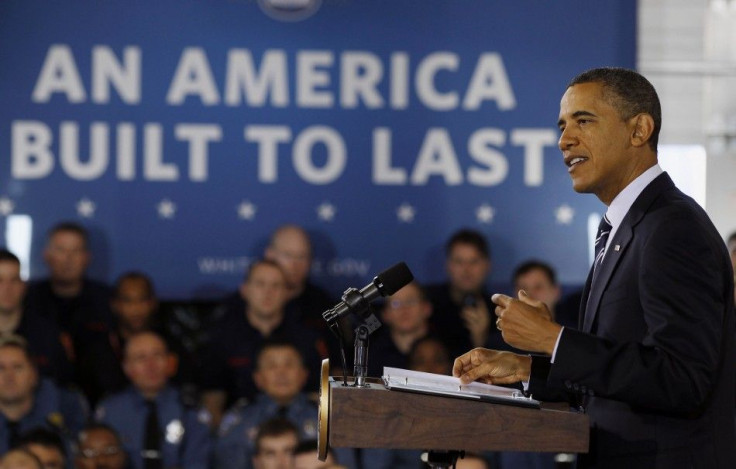Obama Boosts Funds for Alzheimer's Disease Research

(Reuters) - The Obama administration plans to spend an additional $156 million over the next two years to help find an effective treatment for Alzheimer's, a fatal brain-wasting disease that affects more than 5 million Americans.
The White House said on Tuesday it will spend and extra $50 million this year, and it will seek an extra $80 million in fiscal 2013 to bolster Alzheimer's research. Obama also plans to spend an additional $26 million in programs to support people who care for Alzheimer's patients.
The spending increase is intended help make good on a U.S. target set last month to find a way to treat or prevent Alzheimer's by 2025, a goal some experts fear is too ambitious.
Current drugs help manage symptoms but so far no therapy can stop the progression of Alzheimer's, which can start with vague memory loss and confusion before progressing to complete disability and death.
Experts predict that without an effective treatment, the number of Americans with Alzheimer's will double by 2050 and related healthcare costs could soar to more than $1 trillion a year.
These projections are simply staggering, National Institutes of Health Director Dr. Francis Collins said in a statement. This new funding will accelerate NIH's effort to use the power of science to develop new ways of helping people with Alzheimer's disease and those at risk.
The $50 million cash infusion this year brings the U.S. Alzheimer's research budget to half a billion dollars, an improvement, advocates say, but still far short of what the nation spends on other chronic diseases.
The spending will support the nation's first comprehensive plan to fight Alzheimer's disease, an effort mandated by the National Alzheimer's Project Act signed into law by President Barack Obama last year.
The project will coordinate government-wide efforts to prevent and treat the disease and create a national strategy for Alzheimer's.
Australia, France and South Korea already have comprehensive Alzheimer's plans, and global experts have been urging the United States to take a leadership role.
Today's announcement reflects this administration's commitment to confronting Alzheimer's, a disease that takes a devastating toll on millions of Americans, Health and Human Services Secretary Kathleen Sebelius said in a statement.
So far, U.S. investment in the search for Alzheimer's treatments has fallen short of what the nation spends on other chronic diseases, such as cancer and heart disease.
Roughly $6 billion is spent each year by the NIH on cancer, which affects about 12 million Americans, and more than $4 billion on heart disease, which kills more than 800,000 nationally each year.
Alzheimer's advocates advising the HHS on its research strategy have said it will take as much as $2 billion a year in research funding to make a significant difference in finding an effective treatment.
This infusion of funds is important, said Harry Johns, president and CEO of the Alzheimer's Association, who called the disease the public health crisis of this century.
Dr. Ronald Petersen, a Mayo Clinic researcher who chairs the HHS Advisory Council on Alzheimer's Research, said he sees the announcement as a good faith gesture by the administration.
In these times, one could not realistically expect a billion or 2 billion dollars to be allocated in next year's budget, Petersen told Reuters.
But over the long haul, he said it will take a significant amount of funds to meet that target.
(Editing by Bill Trott and Jackie Frank)
© Copyright Thomson Reuters {{Year}}. All rights reserved.






















